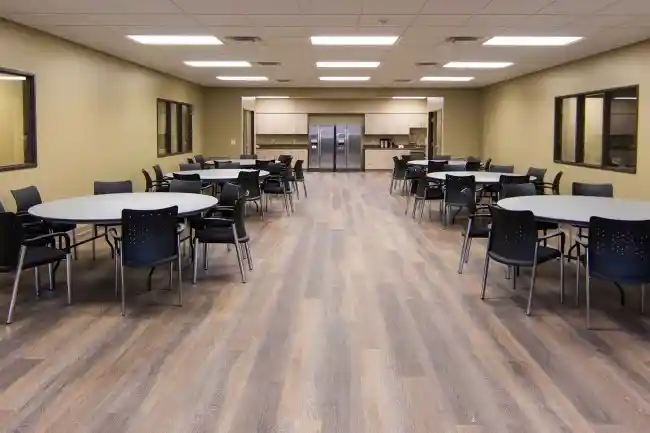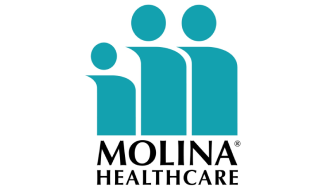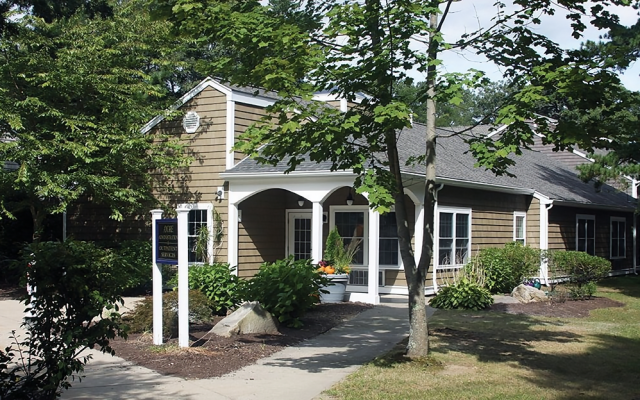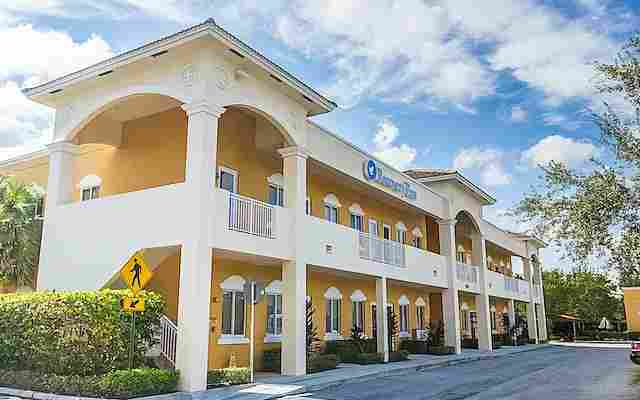
Arlington, Texas, United States
Greenhouse Outpatient Center
Verified
Verified
This provider’s information has been quality-checked by Recovery.com’s Research Team for accuracy and completeness, including center verification through appropriate third-party organizations.
Joint Commission Accredited
The Joint Commission accreditation is a voluntary, objective process that evaluates and accredits healthcare organizations (like treatment centers) based on performance standards designed to improve quality and safety for patients. To be accredited means the treatment center has been found to meet the Commission's standards for quality and safety in patient care.
Provider's Policy
The level of coverage provided by each plan can vary greatly, meaning some forms of treatment may not be covered, and how much you’ll pay out-of-pocket costs will depend on your specific plan.
Estimated Cash Pay Rate
The cost listed here (Call For Rates) is an estimate of the cash pay price. Center pricing can vary based on program and length of stay. Contact the center for more information. Recovery.com strives for price transparency so you can make an informed decision.
Highlights from the Center
Highlights
These highlights are provided by and paid for by the center.
Customized Treatment Plans
Certified Professionals
Trauma-Informed Care
Addiction Recovery
About Greenhouse Outpatient Center
Greenhouse Outpatient Center provides outpatient treatment for addiction and co-occurring mental health conditions using a complete continuum of care and personalized treatment plans. Their levels of outpatient care include day treatment (or partial hospitalization), intensive outpatient, general outpatient care, and telehealth services. Clients can reside at home or in their nearby sober living facility during outpatient care.
Multiple Levels of Outpatient Care
Clients can attend specific levels of care or seamlessly move across the continuum, depending on their current needs. Greenhouse Outpatient Center’s most intensive level of outpatient care, day treatment, provides 3+ days of weekly treatment days. Clients typically spend 6-8 hours in treatment each day, participating in evidence-based therapies like cognitive behavioral therapy (CBT), trauma therapy, dialectical behavioral therapy (DBT), motivational interviewing techniques, art therapy, and the 12-Step program. In Greenhouse Outpatient Center’s day/evening intensive outpatient program (IOP), clients attend treatment about 3 days weekly, 3 hours a day. General outpatient care offers several hours of weekly care, dependent on each client’s needs.
Individualized Treatment Services
Each client at Greenhouse Outpatient Center receives a recovery plan tailored to their unique needs. Their team, including a physician, nurse, primary therapist, and case manager, assess clients’ histories with addiction, mental health, and physical health. The team meets weekly to discuss progress and suggest changes. Treatment plans include 1:1, group, and family therapy as desired. Medication-assisted treatment (MAT) is also available as needed. Greenhouse Outpatient Center also provides psychoeducation and didactic groups to teach clients and their loved ones more about addiction and recovery.
Transitional Sober Living and Aftercare
Greenhouse Outpatient Center offers independent sober living at nearby Resolutions Arlington. Their sober living home offers shared living spaces and kitchens where clients eat and prepare meals together. Transportation is provided for treatment and group outings. Greenhouse Outpatient Center offers ongoing support through its alumni network, alumni app, and support meetings covering a wide array of topics, like grief and loss, LGBTQ+ support, and relapse prevention.
Read More
Insurance Accepted
Provider's Policy:The level of coverage provided by each plan can vary greatly, meaning some forms of treatment may not be covered, and how much you’ll pay out-of-pocket costs will depend on your specific plan.
More American Addiction Centers Locations
Robust Day Treatment Program
Greenhouse Outpatient Center’s day treatment program, or partial hospitalization, provides around 30 hours of weekly care. Clients typically attend treatment 5 days a week, 6-8 hours daily. As needed, clients receive MAT for opioid or alcohol use disorder. A wide range of evidence-based therapies, peer support groups, and psychoeducation topics help clients heal and confidently approach recovery. Case managers and therapists help develop a unique plan for each client.
Flexible Intensive Outpatient Program
Greenhouse Outpatient Center’s IOP offers a less-intensive level of outpatient care for addiction recovery. Clients attend treatment 3+ days a week for about 3 hours a time, allowing them to spend more time at work or school. Their evening schedule goes from 6-9pm on Mondays, Tuesdays, and Thursdays. Clients receive continued behavioral therapies, group therapy, MAT, and family therapy as desired.
Evidence-Based Therapies and Specialized Programs
Greenhouse Outpatient Center uses multiple evidence-based therapies to help clients develop strong coping skills, relapse prevention tools, and to help heal the underlying causes of addiction. Their therapies include CBT, DBT, MI, and 12-Step integration. Greenhouse Outpatient Center offers a veteran’s recovery program with trauma therapy and safe, supportive groups for veterans.

Center Overview
Estimated Cash Pay Rate
Young Adults
Emerging adults ages 18-25 receive treatment catered to the unique challenges of early adulthood, like college, risky behaviors, and vocational struggles.
LGBTQ+
Addiction and mental illnesses in the LGBTQ+ community must be treated with an affirming, safe, and relevant approach, which many centers provide.
Veterans
Patients who completed active military duty receive specialized treatment focused on trauma, grief, loss, and finding a new work-life balance.

Treatment Focus
This center treats primary substance use disorders and co-occurring mental health conditions. Your treatment plan addresses each condition at once with personalized, compassionate care for comprehensive healing.
Treatment
Specializations
Co-Occurring Disorders
A person with multiple mental health diagnoses, such as addiction and depression, has co-occurring disorders also called dual diagnosis.
Drug Addiction
Drug addiction is the excessive and repetitive use of substances, despite harmful consequences to a person's life, health, and relationships.
Twelve Step
Incorporating spirituality, community, and responsibility, 12-Step philosophies prioritize the guidance of a Higher Power and a continuation of 12-Step practices.
Treatment Services
Day Treatment
In a PHP, patients live at home but follow an intensive schedule of treatment. Most programs require you to be on-site for about 40 hours per week.
Intensive Outpatient Program
In an IOP, patients live at home or a sober living, but attend treatment typically 9-15 hours a week. Most programs include talk therapy, support groups, and other methods.
Outpatient
During outpatient rehab, patients attend a structured treatment program while continuing to live at home.
Approaches
Evidence-Based
A combination of scientifically rooted therapies and treatments make up evidence-based care, defined by their measured and proven results.
Family Involvement
Providers involve family in the treatment of their loved one through family therapy, visits, or both–because addiction is a family disease.
Holistic
A non-medicinal, wellness-focused approach that aims to align the mind, body, and spirit for deep and lasting healing.
Individual Treatment
Individual care meets the needs of each patient, using personalized treatment to provide them the most relevant care and greatest chance of success.
Personalized Treatment
The specific needs, histories, and conditions of individual patients receive personalized, highly relevant care throughout their recovery journey.
Twelve Step
Incorporating spirituality, community, and responsibility, 12-Step philosophies prioritize the guidance of a Higher Power and a continuation of 12-Step practices.
Therapies
1-on-1 Counseling
Patient and therapist meet 1-on-1 to work through difficult emotions and behavioral challenges in a personal, private setting.
Meditation & Mindfulness
A practiced state of mind that brings patients to the present. It allows them to become fully aware of themselves, their feelings, and the present moment.
Trauma-Specific Therapy
This form of talk therapy addresses any childhood trauma at the root of a patient's current diagnosis.
Rational Emotive Behavior Therapy
A type of cognitive therapy that identifies negative self-defeating thoughts and behaviors, rewriting beliefs to be positive, empowering, and present.
Art Therapy
Visual art invites patients to examine the emotions within their work, focusing on the process of creativity and its gentle therapeutic power.
Experiential Therapy
With this approach, patients heal by doing. Therapists help patients process difficult emotions to speak, using guided activities like art or dance.
Family Therapy
Family therapy addresses group dynamics within a family system, with a focus on improving communication and interrupting unhealthy relationship patterns.
Medication-Assisted Treatment
Combined with behavioral therapy, prescribed medications can enhance treatment by relieving withdrawal symptoms and focus patients on their recovery.
Conditions We Treat
Anxiety
Anxiety is a common mental health condition that can include excessive worry, panic attacks, physical tension, and increased blood pressure.
Depression
Symptoms of depression may include fatigue, a sense of numbness, and loss of interest in activities. This condition can range from mild to severe.
Obsessive Compulsive Disorder (OCD)
OCD is characterized by intrusive and distressing thoughts that drive repetitive behaviors. This pattern disrupts daily life and relationships.
Post Traumatic Stress Disorder
PTSD is a long-term mental health issue caused by a disturbing event or events. Symptoms include anxiety, dissociation, flashbacks, and intrusive thoughts.
Stress
Stress is a natural reaction to challenges, and it can even help you adapt. However, chronic stress can cause physical and mental health issues.
Suicidality
With suicidality, a person fantasizes about suicide, or makes a plan to carry it out. This is a serious mental health symptom.
Trauma
Some traumatic events are so disturbing that they cause long-term mental health problems. Those ongoing issues can also be referred to as "trauma."
Substances We Treat
Alcohol
Using alcohol as a coping mechanism, or drinking excessively throughout the week, signals an alcohol use disorder.
Benzodiazepines
Benzodiazepines are prescribed to treat anxiety and sleep issues. They are highly habit forming, and their abuse can cause mood changes and poor judgement.
Co-Occurring Disorders
A person with multiple mental health diagnoses, such as addiction and depression, has co-occurring disorders also called dual diagnosis.
Cocaine
Cocaine is a stimulant with euphoric effects. Agitation, muscle ticks, psychosis, and heart issues are common symptoms of cocaine abuse.
Drug Addiction
Drug addiction is the excessive and repetitive use of substances, despite harmful consequences to a person's life, health, and relationships.
Ecstasy
Ecstasy is a stimulant that causes intense euphoria and heightened awareness. Abuse of this drug can trigger depression, insomnia, and memory problems.
Heroin
Heroin is a highly addictive and illegal opioid. It can cause insomnia, collapsed veins, heart issues, and additional mental health issues.
Psychedelics
Hallucinogenic drugs—like LSD—cause euphoria and increased sensory experiences. When abused, they can lead to depression and psychosis.
Methamphetamine
Methamphetamine, or meth, increases energy, agitation, and paranoia. Long-term use can result in severe physical and mental health issues.
Aftercare
Experience
Amenities
Activities
Smoking and Vaping Policy
Learn more about Greenhouse Outpatient Center
We love hearing about your treatment experience
Help individuals and families seeking treatment by sharing your first-hand experience with this treatment provider. Review Guidelines.


































